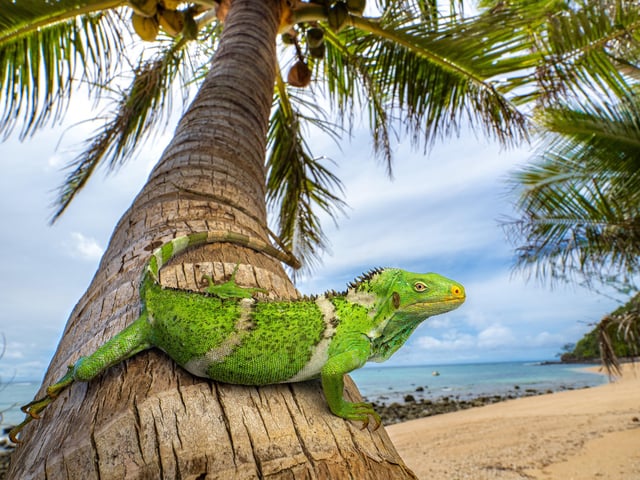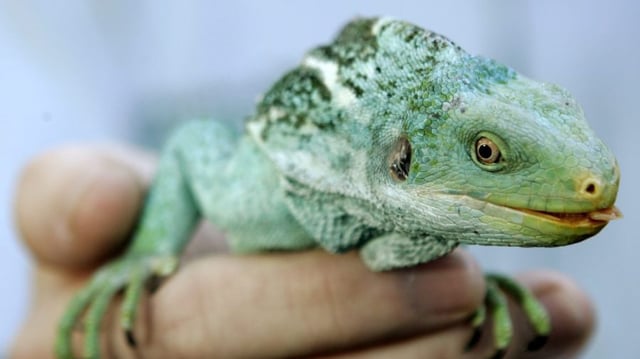Overview
- Fijian iguanas likely traveled 5,000 miles from North America to Fiji on floating vegetation, marking the longest known oceanic journey by a land-dwelling vertebrate.
- Genetic analysis revealed that Fijian iguanas are most closely related to North American desert iguanas, with their lineages diverging around 34 million years ago.
- The iguanas' arrival coincided with the volcanic emergence of the Fiji Islands, suggesting rapid colonization of newly formed land.
- Earlier theories suggesting origins in South America or other Pacific regions have been ruled out by genome-wide sequencing of over 4,000 genes.
- The findings offer critical insights into the evolutionary resilience of iguanas and provide valuable data for conserving endangered Fijian iguana species.


